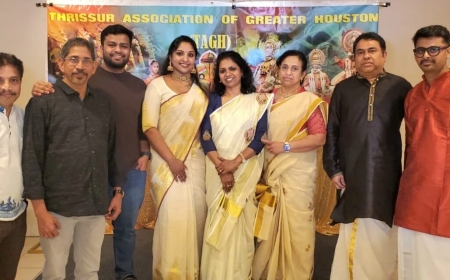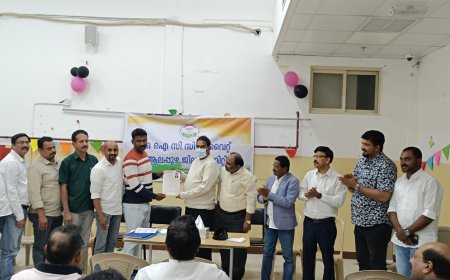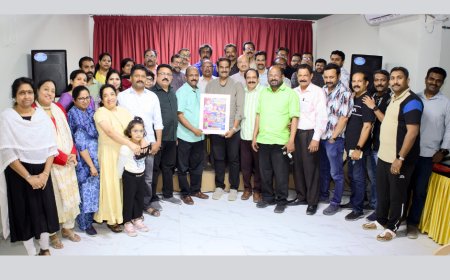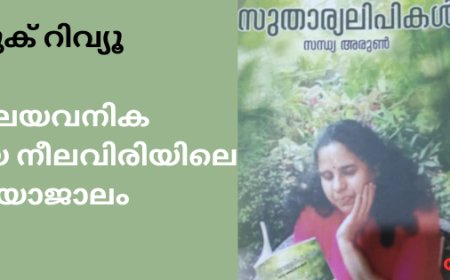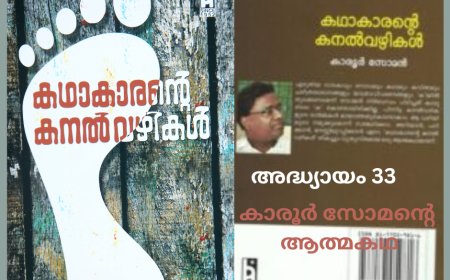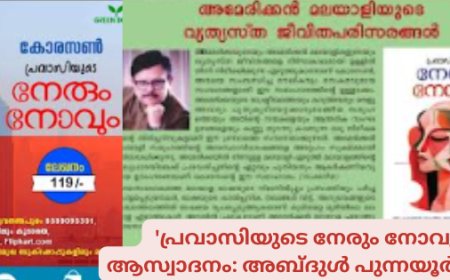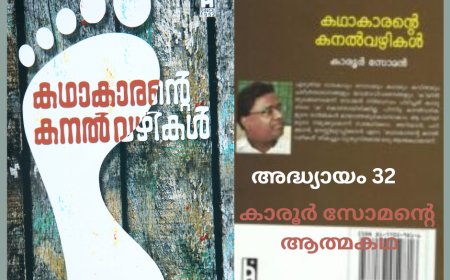‘I need to own my blackness’: Chief Secretary calls out colourism & gender bias
Kerala Chief Secretary Saradha Muraleedharan has sparked an important conversation on colourism and gender bias. Addressing a remark comparing her tenure to that of her predecessor—her husband, V Venu—she wrote in a Facebook post: “Heard an interesting comment yesterday on my stewardship as chief secretary—that it is as black as my husband’s was white. Hmmm. I need to own my blackness.”She initially deleted the post after receiving a flurry of responses, but later reposted it. “Certain well-wishers said that there were things there that needed to be discussed. I agree. So here goes, once again.”Saradha’s appointment was a first of its kind for Kerala, where a wife succeeded her husband as Chief Secretary. A 1990-batch IAS officer, she took over the top post from V Venu, who retired on August 31, 2024. Before this, she was the Additional Chief Secretary (Planning and Economic Affairs).Speaking about the comment on her complexion, Saradha wrote: “I was hurt, yes. But then these last seven months have been a relentless parade of comparisons with my predecessor, and I have become quite inured. It was about being labelled black (with that quiet subtext of being a woman), as if that were something to be desperately ashamed of. Black is as black does. Not just black the colour, but black the ne’er do good, black the malaise, the cold despotism, the heart of darkness.”Challenging the idea that black should be associated with negativity, she added, “But why should black be vilified? Black is the all-pervasive truth of the universe. Black is that which can absorb anything, the most powerful pulse of energy known to humankind. It is the colour that works on everyone, the dress code for office, the lustre of evening wear, the essence of kajol, the promise of rain.”Saradha also spoke about her personal struggles with internalised colourism. Sharing an experience from childhood, she said, “As a four-year-old, I apparently asked my mother whether she could put me back in her womb and bring me out again, all white and pretty.”She admitted to having internalised societal beauty standards for decades. "I have lived for over 50 years buried under that narrative of not being a colour that was good enough. And buying into that narrative. Of not seeing beauty or value in black. Of being fascinated by fair skin. And fair minds, and all that was fair and good and wholesome. And of feeling that I was a lesser person for not being that - which had to be compensated somehow."Saradha credited her children for reshaping her perspective, stating that they gloried in their black heritage, and kept finding beauty where she noticed none. “[My children] who thought that black was awesome. Who helped me see. That black is beautiful. That black is gorgeousness. That I dig black," she added.

KERALA Chief Secretary Saradha Muraleedharan has sparked an important conversation on colourism and gender bias.
Addressing a remark comparing her tenure to that of her predecessor—her husband, V Venu—she wrote in a Facebook post: “Heard an interesting comment yesterday on my stewardship as chief secretary—that it is as black as my husband’s was white. Hmmm. I need to own my blackness.”
She initially deleted the post after receiving a flurry of responses, but later reposted it. “Certain well-wishers said that there were things there that needed to be discussed. I agree. So here goes, once again.”
Saradha’s appointment was a first of its kind for Kerala, where a wife succeeded her husband as Chief Secretary. A 1990-batch IAS officer, she took over the top post from V Venu, who retired on August 31, 2024. Before this, she was the Additional Chief Secretary (Planning and Economic Affairs).
Speaking about the comment on her complexion, Saradha wrote: “I was hurt, yes. But then these last seven months have been a relentless parade of comparisons with my predecessor, and I have become quite inured. It was about being labelled black (with that quiet subtext of being a woman), as if that were something to be desperately ashamed of. Black is as black does. Not just black the colour, but black the ne’er do good, black the malaise, the cold despotism, the heart of darkness.”
Challenging the idea that black should be associated with negativity, she added, “But why should black be vilified? Black is the all-pervasive truth of the universe. Black is that which can absorb anything, the most powerful pulse of energy known to humankind. It is the colour that works on everyone, the dress code for office, the lustre of evening wear, the essence of kajol, the promise of rain.”
Saradha also spoke about her personal struggles with internalised colourism. Sharing an experience from childhood, she said, “As a four-year-old, I apparently asked my mother whether she could put me back in her womb and bring me out again, all white and pretty.”
She admitted to having internalised societal beauty standards for decades. "I have lived for over 50 years buried under that narrative of not being a colour that was good enough. And buying into that narrative. Of not seeing beauty or value in black. Of being fascinated by fair skin. And fair minds, and all that was fair and good and wholesome. And of feeling that I was a lesser person for not being that - which had to be compensated somehow."
Saradha credited her children for reshaping her perspective, stating that they gloried in their black heritage, and kept finding beauty where she noticed none.
“[My children] who thought that black was awesome. Who helped me see. That black is beautiful. That black is gorgeousness. That I dig black," she added.

















